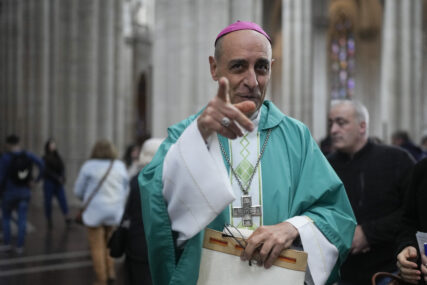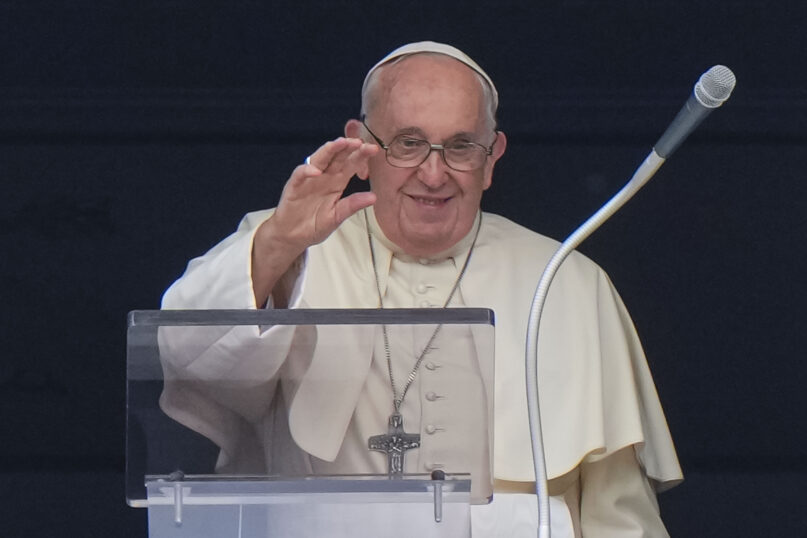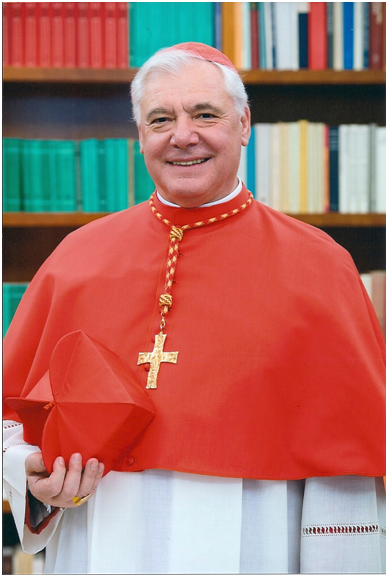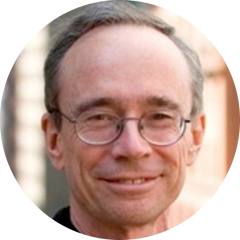(RNS) — Lately, Pope Francis has been busy appointing men and women who support his vision of a synodal church to positions where it matters. This is evident in his recent appointments to the college of cardinals, the synod, to the Roman Curia and to archdioceses.
These appointments are important because, as every management consultant will tell you, “personnel is policy.” An organization can have wonderful policies, but if the people responsible for implementing them are not on board, those policies will fail.
On Sunday (July 9), Francis appointed 21 new cardinals, 18 of whom are under 80 years of age and therefore able to vote for a new pope in a conclave. After these new cardinals are created at a consistory on Sept. 30, there will be 137 cardinal electors, three more than the previous high in 2001 under John Paul II.
Seventy-two percent of the cardinal electors, who will elect the next pope, have been appointed by Francis, which makes it more likely that the next pope will continue the direction Francis has charted for the church.
To the Synod on Synodality, which will begin Oct. 4, Pope Francis appointed four U.S. cardinals and an archbishop who are close to him in thinking.
The four U.S. cardinals are: Sean O’Malley, archbishop of Boston; Wilton Gregory, the archbishop of Washington, D.C.; Blase Cupich, the archbishop of Chicago; and Robert McElroy, the bishop of San Diego. The other episcopal appointment is Archbishop Paul Etienne of Seattle.
Also attending the synod is Cardinal Joseph Tobin, archbishop of Newark, who is a member of the Vatican council that has been planning the synod, and Cardinal Kevin Farrell, an American who works in the Vatican Curia.
All these prelates are loyal supporters of Francis and his policies.
On the other hand, the American bishops selected for the synod by the U.S. Conference of Catholic Bishops are less enthusiastic in their support, although none publicly opposes Francis.
Not surprising was the selection of the USCCB president, Timothy Broglio, archbishop of the military services. Presidents are always elected to go to synods. Bishop Daniel Flores of Brownsville, Texas, was another obvious choice because he has been the bishops’ point man on the synod.
Also chosen were the chair of the USCCB committee on doctrine, Bishop Kevin Rhoades of Fort Wayne-South Bend, Indiana, as well as media-savvy Bishop Robert Barron of Winona-Rochester, Minnesota, and conference favorite Cardinal Timothy Dolan of New York.
Although the American bishops appointed to the synod by Francis have been unwavering in their support for the pope, Francis has also appointed conservative bishops to the synod, for example, to balance the more liberal prelates chosen by the German bishops. A noteworthy appointment is the former prefect of the Congregation of the Doctrine of the Faith, Cardinal Gerhard Ludwig Müller, who has harshly criticized the synodal process.
Müller has been unhappy with Francis since the pope failed to reappoint him as prefect when his term expired. If Francis wanted a rubber-stamp synod, Müller would have been his last choice.
On the other hand, Müller was instrumental in working out a compromise on divorced Catholics with Cardinal Walter Kasper that saved the 2015 Synod on the Family from ending in chaos.
Francis was wise enough to invite conservatives into the tent in the hope that experiencing the synodal process will have a transformative impact. Better to have them in the synod than condemning it from the outside. If, at the conclusion of the Synod on Synodality, prelates like Müller support its recommendations, it will be very difficult for other conservatives to object.
Among the non-episcopal delegates to the synod — priests and laymen and women — is the Jesuit priest the Rev. James Martin, editor at large for America Magazine and founder of Outreach, a ministry for L.G.B.T.Q Catholics. Martin has been a frequent target of conservative Catholic activists but has been supported in his ministry by Francis.
Martin could play a crucial role at the synod in discussions of LGBTQ Catholics. He is also very knowledgeable of Ignatian discernment, a prayerful process that will be key to the success of the synod.
More than 50 women will be included in the approximately 360 voting members from different countries, cultures and generations, all of them ensuring that the synod has wide diversity. Thirty additional nonvoting participants, including 12 fraternal delegates from other Christian denominations, will also attend.
This will be the largest synod since they were instituted by Paul VI after the Second Vatican Council. It may also prove to be the most important synod since the council.
Besides appointing people to the synod, the pope has been busy with other appointments.
To head the Dicastery for the Doctrine of the Faith, Francis appointed Argentine Archbishop Víctor Manuel Fernández, who was welcomed by theological scholars but opposed by conservatives.
Fernández is a close associate of Francis, but he has been criticized for “Heal Me With Your Mouth: The Art of Kissing,” a book he wrote for teenagers, which he has asked the publisher to discontinue.
He was also criticized for an openness to blessing gay couples. He clarified his position on that by stating that gay marriages should not be confused with a sacramental marriage between a man and a woman. Blessings that did not create such confusion should be “analyzed and confirmed.”
When Francis was archbishop of Buenos Aires, he appointed Fernández as rector of the Pontifical Catholic University of Argentina. This appointment was held up by the then-Congregation for the Doctrine of the Faith, the very office he will now head. After about two years, he was eventually cleared for the position.

Monsignor Víctor Manuel Fernández, archbishop of La Plata, smiles after a Mass at the Cathedral in La Plata, Argentina, Sunday, July 9, 2023. Fernandez was appointed by Pope Francis to head the Holy See’s Dicastery for the Doctrine of the Faith at the Vatican. (AP Photo/Natacha Pisarenko)
Fernández has also been criticized for failure to crack down more quickly on a sexually abusive priest, which is important, since he will be head of the office that deals with abusive priests. “Today I would certainly act very differently and certainly my performance was insufficient,” he admitted to The Associated Press
Francis, however, asked him to focus on doctrinal issues and leave the abuse questions to the competent staff at the dicastery.
Historically, the dicastery handled the laicization of abusive priests because its former head, Joseph Ratzinger, was the only Curia cardinal who took the issue seriously under John Paul II. There is no logical reason abusive priests should be handled by DDF. It would make more sense to set up a separate office, perhaps a department of justice, to deal with abusive priests and other criminal activity in the church.
In his letter of appointment, Francis asked Fernández to focus on “promoting theological knowledge” and encouraging “the charism of theologians and their scholarly efforts” rather than pursuing possible doctrinal errors. Having been investigated by the Vatican, Fernández is the perfect choice to reorient the dicastery from policeman to promoter.
Francis has also been appointing some young bishops to key sees where they will have an impact long after he is gone. By “young,” I mean bishops in their 50s who could be in office for 20 years or more. These appointments include the archdioceses of Mechelen-Brussels, Toronto, Buenos Aires and Madrid.
These recent appointments show that Francis now understands that “personnel is policy.” Many of us wish he had focused on this, especially in the U.S. and in the Curia, from the beginning of his papacy.
Francis, however, prefers to go slowly and incrementally when it comes to changes in policy or personnel. Those of us who want change may be disappointed by this incremental way of proceeding, but more rapid change in Protestant churches has often resulted in schisms, something popes want to avoid at all costs.
This incremental approach to change will undoubtedly surface in the synod as well, as Francis tries to balance the impatience of progressive Catholics against the fears of conservatives.
Correction: In an earlier version of this column, I wrote that Archbishop William Lori of Baltimore might be elected president of the USCCB. At the time of the next election, he will be too old to be elected.







